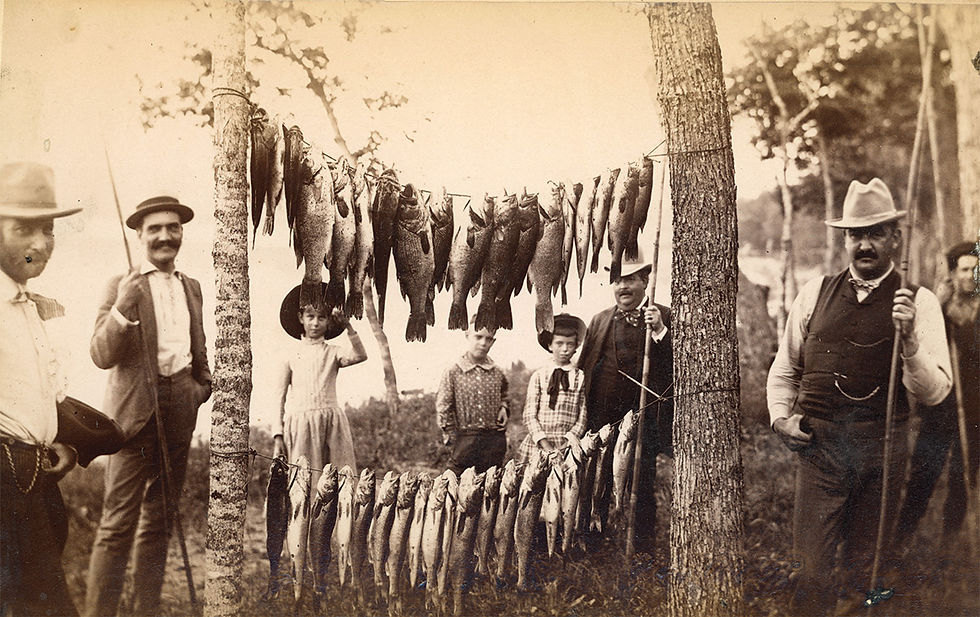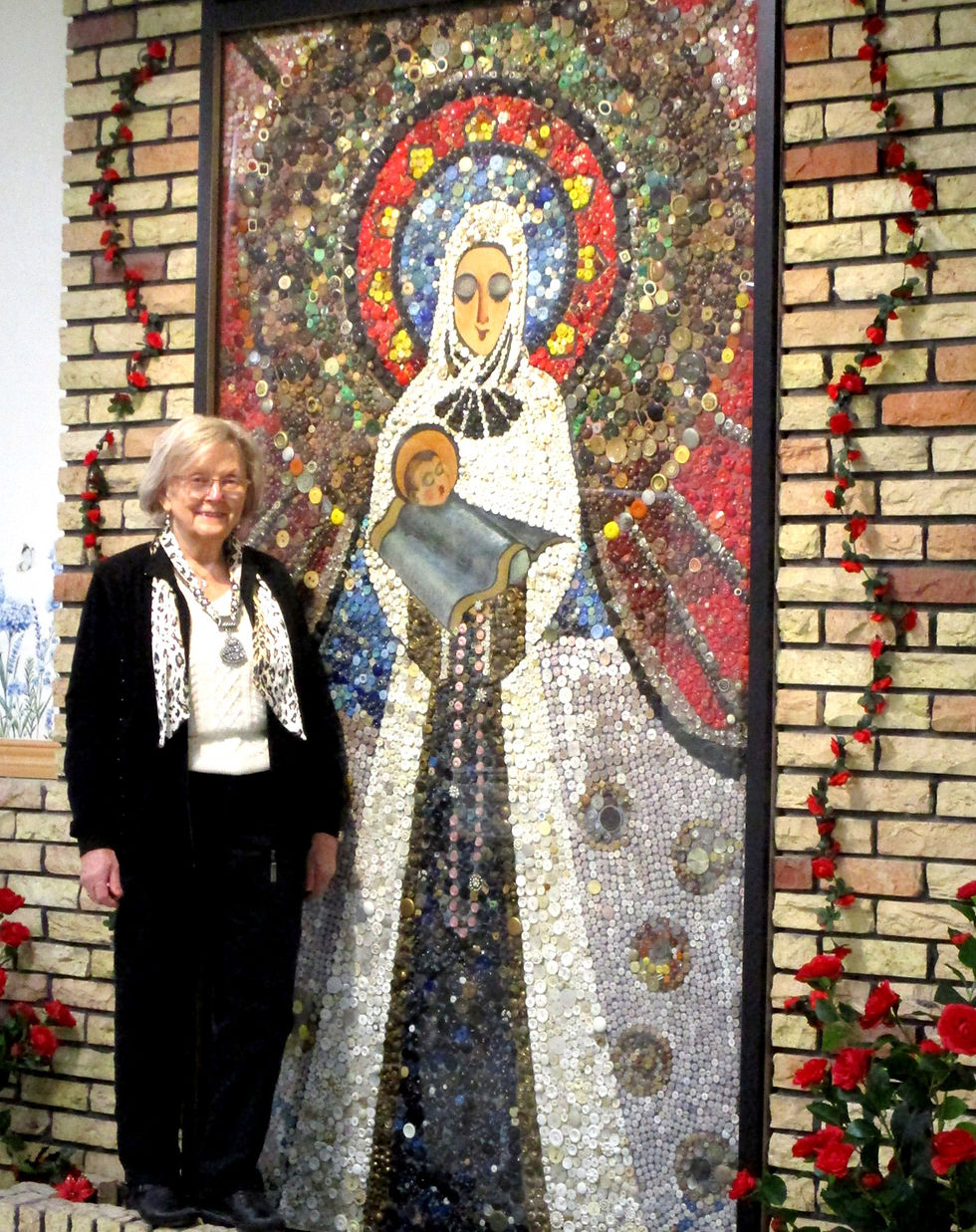A career in the courts
- Sr Perspective

- Aug 1, 2022
- 6 min read
Longtime Fargo man was court reporter for 53 years
By VIVIAN (MAKELA) SAZAMA
Norman “Norm” E. Mark has spent much of his life in court. But he was never a suspected criminal, a lawyer, or a judge. Norm was a court reporter for 53 years. And sometimes, because he was a freelance court reporter, his job would require traveling across the country and even into other countries.
Starting fresh out of high school in 1963, to his retirement in 2016, Mark has seen and witnessed a lot of history and changes in the courts. He started out transcribing court proceedings on a typewriter with carbon copies before ending his career working on steno machines with direct feeds to computers. He has also traveled all across the country and even took trips overseas as part of his court reporting duties.
Norm, who lived in Fargo for many years but now lives in Detroit Lakes, was born in Madison County, Iowa, outside of Des Moines, Iowa, home of the movie “Bridges of Madison County.”

While in high school, he became interested in court reporting through friends of the family, and decided to take shorthand. He found he was the only boy in the class, but decided that wasn’t so bad, especially since the instructor was a retired Marine. Since he didn’t want to go to college, he decided to enroll in court reporting classes at the American Institute of Business in Des Moines, which he took for one year, then transferred to the Minnesota School of Business in Minneapolis for another year. The minimum requirement for the class was 200 words per minute, and Norm got to 225 words per minute. The average person speaks 140-150 words per minute, Norm said, but with people talking over each other and overlapping, Norm said it can be a challenge at times.
After graduating in 1963, Norm took his first road trip with his parents to the west coast for two weeks, then took a job at the Gore Reporting Company, a freelance firm in St. Louis, Missouri. One of his first big assignments was at a Worldwide Iron and Steel Engineers Convention in Cincinnati, Ohio, which was held in an arena. The reporters weren’t allowed in the middle, but had to stay off to the side, which made it even more difficult to follow, not to mention all of the different foreign accents from people from all over the world. Norm said it was a really challenging experience, making him wonder if he wanted to continue in the trade. He said the transcript came out “not verbatim”!
After a year and a half in St. Louis, Norm then took a job in Grand Forks, ND, working for a judge (Hager). That is where Norm held the longevity record for a long time of two and a half years. Norm then relocated to Fargo to work for Judge Ralph B. Maxwell from August 1967 to August 1970. At that time, he decided that if he wanted to take orders he’d enlist in the military, so he decided to start his own business, the Norman E. Mark Court Reporting Service, or CRS, which became his logo.
Prior to Norm’s generation, court reporters used shorthand and a pad. After that came the stenography machines with 22 keys, which compares distantly to a typewriter. “The steno machines are like a shorthand,” said Norm. “A letter can mean a word, and a group of letters simultaneously represent a word or a commonly used phrase. When the day was done, then the translation into a written report was done, which could sometimes take well into the night,” said Norm. One court case lasted nine weeks with translations not being completed until 9:00 pm, or sometimes not until 1 am, only to have to be back in court by 8 am the next morning. In the beginning, Norm used a typewriter with carbon copies.
“Usually if there was going to be a mistake it was at the bottom of the page,” he laughed, “Then we’d have to be very careful in making the correction.”
Court Reporters also serve as Notary Publics in depositions, and they would swear in a witness. “The witness would swear to tell the truth and only the truth, but after an hour or so, the witness sometimes would say, “Well, to tell the truth…” laughed Norm. They also had to record whatever was said in the courtroom verbatim. “One time an orthopedic surgeon was giving testimony, and he used the word 'Yah' instead of 'yes,' so that’s how I recorded it. The surgeon later complained and asked me to change it to 'yes'. I refused as it was verbatim,” laughed Norm.
The biggest case Norm worked with over the years was the Andrews Medical Malpractice trial. For two years prior to the trial, Norm was flown all over the United States gathering depositions. In the winter of 1983-84, he was flown to Washington D.C. where it snowed six inches one day. The city was not prepared for it, and the people were not used to traveling around in it. Being a midwesterner, this was nothing for Norm. He had a widowed relative across town that he wanted to visit, so he took a cab, but the driver ended up stalled behind a bus. Norm helped push cars up a hill, then several young people came by in a ragtop jeep, and Norm paid them to bring him to his relative.
Other cases of note, said Norm, were with the Melroe Bobcat Skidsteer company, which had offices in Fargo. “They had accident cases at times, and when they had patent cases they would send me to Brussels, Belgium,” he said. “We were involved very little in criminal cases, but one time at 1-2 am I got a call from the Clay County State’s Attorney asking me to come to the jail to take a deposition. It was from a person who had allegedly picked up a young lady to take her to the lakes country, only on the way she became very frightened and jumped out of the vehicle and died. Another time in Grand Forks, I took the deposition of a kidnap/rape case of a cab driver who ended up in state prison.
Another case involved a young man accused of abducting a young girl whose body was found in the Red River. He was imprisoned in the penitentiary in Bismarck, and I had to go there to take his statement. That was something to go through those big thick doors and hear them shut behind you. The young man was in shackles, hands and feet, and seated right across the table from me. He was a big guy, and I was really glad that two attorneys plus an investigator were in the room with us!” said Norm. Years later, Norm learned that this young man had been transferred to a prison in New Mexico and had escaped when being brought to a different location in a bus. Norm and his wife Lisa were at a convention in Dallas at this time, and they found out later that this criminal had shaved off his beard, was living with a young mom with two kids, and working at the same convention in a concession stand. His picture had been put on the “America’s Most Wanted” television show, and someone had recognized him and reported it.

During Norm’s 53 years of court reporting there were a lot of cases surrounding asbestos litigation. It was the biggest and longest type of litigation, and is still going on today. He worked on asbestos cases three days per week, every other week. It could take five minutes to five days. “The asbestos is 1/100th the size of a human hair, and has a hook on the end, which attaches to the lungs, which then calcifies around the strand. It can have a latency of up to 50 years.” he said. “The Navy used their crew to remove the asbestos from the ships before retiring them.”
Norm worked in 20-25 states, and was in Canada several times. One estate dispute sent him to Norway two times to take depositions. “There aren’t any court reporters in Norway,” said Norm. “The judge takes the notes, and that could be a problem depending on how he was leaning!’
In later years, the stenography machines were connected to a computer which was the size of a table. Later it progressed to smaller computers. “The screen was like the “real time” strip you see running across the TV screen,” said Norm. “I always asked the witness to spell their name. Smith might be spelled Smythe. We could then program the computer for that case to always spell it Smythe,” he said. “I’m really glad I’m not doing it anymore just for all the different names in the area now. It used to be just names like Johnson or Smith, but not so now.”
The court reporters are supposed to be stoic and maintain a neutral composure, which could be difficult at times. “However, if the attorneys laughed at something,” Norm said, “I could feel free to join in!”
In 2016, Norm sold his business to a woman in Minneapolis who later sold it to a national company, Veritext, who closed the physical office in Fargo in January of this year. Norm and his wife Lisa sold their home in Fargo and bought a home in Sun Lakes, Ariz., and now spend summers at their home in Forest Hills RV Resort/Golf Course near Detroit Lakes.




Comments